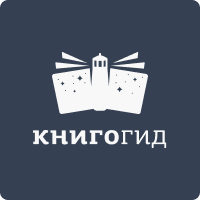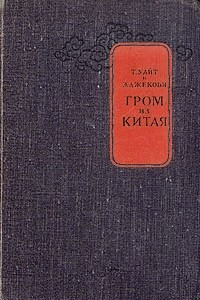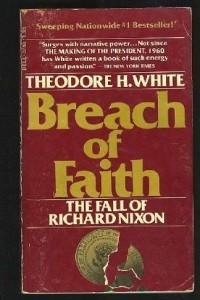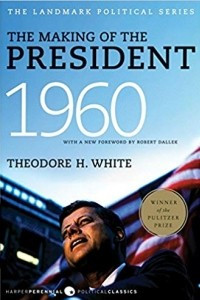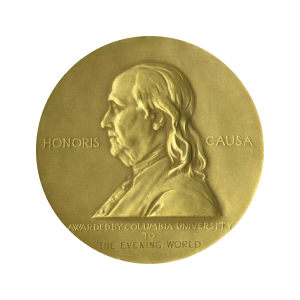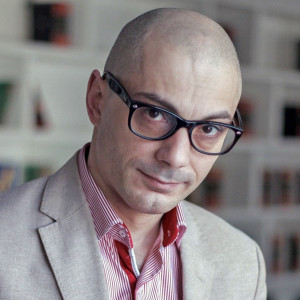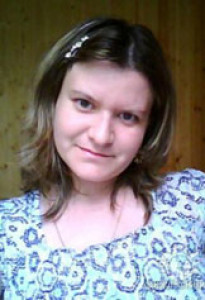-
Жанры
-
Художественная литература
- Приключения 75083
- Фантастика 100897
- Фэнтези 73474
- Детектив 59379
- Ужасы 48028
- Роман 70045
- Классическая литература 60314
- Историческая проза 8094
- Современная проза 141702
- Детская литература
- Культура и искусство
- Научная литература
- История
- Бизнес
- Прикладная литература
- Документальная литература
- Образование
- Дом и семья
- Физическая культура
- Здоровье
- Литература на иностранных языках
-
Художественная литература
- Книги
- Рецензии
- Сообщество
- Блоги
- Цитаты
- Тесты
- Подборки
- Премии
- Конкурсы
- Другое

Теодор Уайт
Краткая биография автора
Theodore Harold White (Chinese: 白修德) was an American political journalist, historian, and novelist, known for his wartime reporting from China and accounts of the 1960, 1964, 1968, 1972 and 1980 presidential elections. White was the son of lawyer David White. In his book In Search of History: A Personal Adventure, White describes his life growing up as a Jew in Boston's Jewish ghetto, attending Hebrew school (where he developed an interest in Tanakh and could still recall many of its phrases de...
Theodore Harold White (Chinese: 白修德) was an American political journalist, historian, and novelist, known for his wartime reporting from China and accounts of the 1960, 1964, 1968, 1972 and 1980 presidential elections. White was the son of lawyer David White. In his book In Search of History: A Personal Adventure, White describes his life growing up as a Jew in Boston's Jewish ghetto, attending Hebrew school (where he developed an interest in Tanakh and could still recall many of its phrases decades later in their original language) and helping form one of the early Zionist collegiate organizations during his time in college. Based upon his academic achievements at Boston Latin School, from which he graduated in 1932 and where he was driven to succeed in the wake of his father's death, White received a scholarship to Harvard University in 1934. White graduated from Harvard in 1938 summa cum laude (Joseph P. Kennedy, Jr. was a classmate), with a degree in Chinese history and studies, the first student of John K. Fairbank. Awarded a traveling fellowship for round-the world journey, he ended up in Chungking (Chongqing), China's wartime capital, on a fellowship and later became a freelance reporter after briefly starting out with the only job he could find: as an advisor to China's propaganda agency. When Henry R. Luce, the China-born founder and publisher of Time magazine, learned of White´s expertise, he hired him and then came to China the following year, when the two became friends. White became the China correspondent for Time during the war. White chafed at the restrictions put on his reporting by the censorship of the Nationalist government and the rewriting of his stories by the editors at Time. Although he maintained great respect for Henry Luce, he resigned and returned home to write, along with Annalee Jacoby, widow of fellow China reporter, Mel Jacoby, a best selling description of China at war and in crisis, Thunder Out of China. The book described the incompetence and corruption of the Nationalist government and described the power of the rising Communist Party. The authors called upon Americans to come to terms with this reality. The Introduction warned “In Asia there are a billion people who are tired of the world as it is; they live such terrible bondage that they have nothing to lose but their chains.... Less than a thousand years ago Europe lived this way; then Europe revolted... The people of Asia are going through the same process.” (p. xiii). White then served as European correspondent for the Overseas News Agency (1948–50) and for The Reporter (1950–53) White returned to his wartime experience in the novel The Mountain Road (1956), which dealt with the retreat of a team of American troops in China in the face of a Japanese offensive. The novel was frank about the Americans' conflicting, sometimes negative attitudes toward their Chinese allies. It was made into a 1960 movie, starring James Stewart, that has often been characterized as anti-war. With experience in analyzing foreign cultures from his time abroad, White took up the challenge of analyzing American culture with the books The Making of the President, 1960 (1961), The Making of the President, 1964 (1965), The Making of the President, 1968 (1969), and The Making of the President, 1972 (1973), all analyzing American presidential elections. The first of these was both a bestseller and a critical success, winning the 1962 Pulitzer Prize for general nonfiction. It remains the most influential publication about the election that made John F. Kennedy the President. The later presidential books sold well but failed to have as great an effect, partly because other authors were by then publishing about the same topics, and White's larger-than-life style of storytelling became less fashionable during the 1960s and '70s. A week after the death of JFK, Jacqueline Kennedy summoned White to the Kennedy compound in Hyannis Port to "rescue" her husband's legacy. She proposed that White prepare an article for Life magazine drawing a parallel between her husband and his administration to King Arthur and the mythical Camelot. At the time, a play of that name was being performed on Broadway and Jackie focused on the ending lyrics of an Alan Jay Lerner song, "Don't let it be forgot, that once there was a spot, for one brief shining moment that was known as Camelot." White, who had known the Kennedys from his time as a classmate of the late President's brother, Joseph P. Kennedy, Jr., was happy to oblige. He heeded some of Jackie's suggestions while writing a 1,000 word essay that he dictated later that evening to his editors at Life. When they complained that the Camelot theme was overdone, Jackie objected to changes. By this telling, Kennedy's time in office was transformed into a modern day Camelot that represented, “a magic moment in American history, when gallant men danced with beautiful women, when great deeds were done, when artists, writers, and poets met at the White House, and the barbarians beyond the walls held back.” Thus was born one of the nation's most enduring, and inaccurate, myths. White later described his comparison of JFK to Camelot as the result of kindness to a distraught widow of a just-assassinated leader, and wrote that his essay was a "misreading of history. The magic Camelot of John F. Kennedy never existed." After Watergate and the fall of Richard Nixon, White broke his quadrennial pattern with Breach of Faith: The Fall of Richard Nixon (1975), a dispassionate account of the scandal and its players. There was no 1976 volume from White. (The closest analogue was Marathon by Jules Witcover.) After a volume of memoirs, published in 1978, he returned to presidential coverage with the 1980 campaign, and America In Search of Itself: The Making of the President, 1956-80 (1982), draws together original reporting and new social analysis of the previous quarter-century, focusing primarily but not exclusively on the Reagan-Carter contest. His final entry in the series, "The Making of the President, 1984," was a lengthy post-election analysis piece in Time, in its special Ronald Reagan issue of November 1984. On May 15, 1986 White suffered a sudden stroke and died in New York City. He was survived by two of his children, Heyden White Rostow and David Fairbank White.
На нашем книжном сайте Вы можете скачать книги автора Теодора Уайта в самых разных форматах (epub, fb2, pdf, txt и многие другие). А так же читать книги онлайн и бесплатно на любом устройстве – iPad, iPhone, планшете под управлением Android, на любой специализированной читалке. Электронная библиотека КнигоГид предлагает литературу Теодора Уайта в жанрах .
Творчество Теодора Уайта
На нашем сайте представлены 3 книги автора Теодора Уайта. Самая популярная по мнению наших читателей "".
Авторы книги - американские журналисты Т. Уайт и Э. Джекоби - видели китайский народ в годы борьбы против японского империализма. В форме своеобразного и живого репортажа они рассказывают о невыносимо тяжелых условиях жизни народных масс Китая, страдающих от гнета империалистов и гоминдановской реакции. Сокращенный перевод с английского И. Е. Овадиса. Вступительная статья В. А. Масленникова.
The Nixon crisis of 1973-74 threatened the state in ways not immediately understood. Stripped of drama & confusion, however, the problem was that the President had placed himself above the law. The nation had to decide whether that could be allowed. Theodore H. White starts this story with the last days of Richard Nixon in the White House--as those closest recognized he'd deceived them & that...
A Harper Perennial Political Classic, The Making of the President 1960 is the groundbreaking national bestseller and Pulitzer Prize-winning account of the 1960 presidential campaign and the election of John F. Kennedy. The Making of the President: 1960 revolutionized the way modern presidential campaigns are reported. Reporting from within the campaign for the first time on record, White’s exte...
Похожие авторы

Если у Вас возникли вопросы по работе сайта - напишите нам!
нашли ошибку на странице!

Нейросеть ориентируется на оценки прочитанных вами книг
поиск

Найдите книгу, автора, подборку, издательство, жанр, настроение или друга на Книгогид
подборки

Создавайте подборки с книгами, которые вы прочитали, подписывайтесь на подборки интересных пользователей.
Регистрируясь, вы соглашаетесь с нашими Условиями и политикой конфиденциальности
Книгогид использует cookie-файлы для того, чтобы сделать вашу работу с сайтом ещё более комфортной. Если Вы продолжаете пользоваться нашим сайтом, вы соглашаетесь на применение файлов cookie.

